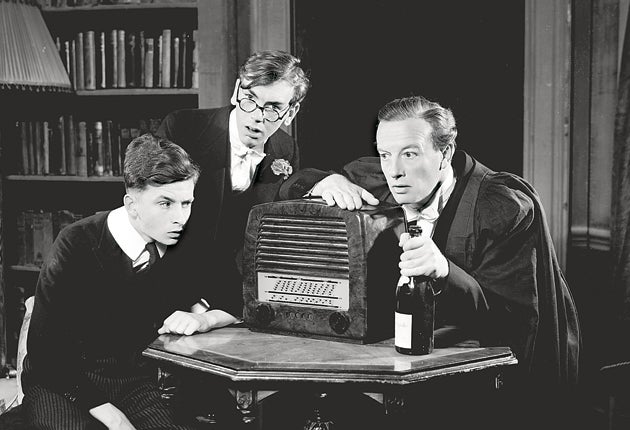So who thinks DAB is the future? Not enough of us to make it so
Ditching analogue radio was meant to be progress. Don't be so sure

It isn't very often an advert en- courages you not to buy a product. But such is the anger aroused by proposals to kill off FM radio that a campaign is afoot to discourage consumers from buying digital radios this Christmas.
The idea comes in retaliation to a campaign launched two weeks ago, in which comedians David Mitchell and Arthur Smith have been extolling the merits of DAB radio in a push to get more than 50 per cent of audiences switching from analogue.
If that all sounds confusing, it's because the future of British radio has never been less certain. Since January 2009, when Lord Carter's report said that the future of radio was digital, scare stories have hinted that FM will one day be switched off, whether we are ready for it or not. This year's Digital Economy Act said that Britain must prepare for a switchover, and 2015 has been pencilled in as a date, though this has now been put back to 2017.
But the assumption that a switchover is inevitable is wrong; like ID cards, it could simply never happen. A Department of Media, Culture and Sport (DCMS) spokeswoman said that it would be dropped if it failed to attract enough support. "We're not going to force DAB on to an unwilling public," she said. "The target date is a working date, but the switchover is clearly conditional on meeting the 50 per cent target."
Although the coalition has committed itself to proposals set out by the previous government, it also points out that they remain conditional on two points. First, that at least 50 per cent of listeners are using digital radio by 2013; second, that geographical coverage of DAB matches that of FM. Neither criteria are anywhere near being met.
Currently, 35 per cent of radio listeners use a DAB set. To meet the target would require an annual increase of 15 per cent for the next three years. Many listeners say DAB radios are not as good as they are cracked up to be: the sound quality is worse, not better, they say; they use more battery power; they are more expensive; cars do not yet have them; they don't work well on the move; pirate radios can't broadcast via them; and the scrapping of perfectly good analogue radios is ecologically unsound.
The main complaint, however, is that the DAB signal remains poor in many areas. Thus a catch-22 situation: a switchover cannot take place until digital audiences grow, but while coverage remains poor, there is no incentive to switch. The biggest barrier to resolving this impasse is money.
The roll-out of the DAB transmitter network is expected to cost between £100m and £200m, though the full cost will not be known until next year. Who will pay is proving to be a major sticking point within the industry. Ed Vaizey, a Culture minister, met representatives of the BBC and commercial sector on Tuesday to settle how the cost is to be spread. Vaizey has said he wants the BBC to make a significant contribution, though no provision was made for it in the recent licence-fee settlement.
The DCMS spokeswoman describes this issue as "a live discussion", but says that it is likely to end up as "a division of cost between public and private".
The trouble is that the commercial sector is reluctant to invest in a venture still riddled with uncertainty. Companies including Bauer Radio and Global Radio refused to air Digital Radio UK's ad campaign last month. They said that encouraging consumers to invest in a product they may not be able to use was "fundamentally immoral and dishonest".
DAB take-up has been sluggish in Britain since its introduction in 1995, though better than elsewhere in Europe. Digital Radio UK, the body responsible for promoting it, has signalled its intention to make 2011 its most active campaigning year to date. But an advisory body warned the Government in September against "bullying" or "scaring" consumers into abandoning analogue radios.
Indeed, the enthusiasm of successive governments for the switchover has prompted some to question their motive. One suggestion is that, once obsolete, the FM bandwidth could be sold to mobile phone companies.
The DCMS spokeswoman said there were no plans for a sell-off "at the moment", but did not rule it out. "We may come to a situation where a proportion of bandwidth is no longer required, and will consider possible other uses for it." However, she added that it was intended that FM be made available to community radio stations.
In the meantime, the future of radio remains in the hands of the listeners. If the public chooses not to invest in digital radios this Christmas or in the coming months, DAB will go the way of ID cards.
Join our commenting forum
Join thought-provoking conversations, follow other Independent readers and see their replies
Comments
Bookmark popover
Removed from bookmarks